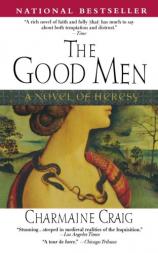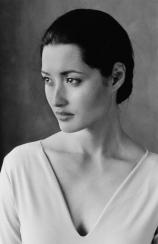Reading Group Guide
Discussion Questions
The Good Men: A Novel of Heresy

1. Do you consider the forms of religious extremism found in The Good Men—the extreme asceticism practiced by the Good Christians and the violent persecution of heretics by the Catholic Church—to be in any way related or similar? What drives Bernard to become an Inquisitor? What drives the Good Christians?
2. In her deposition, Grazida Lizier says of her illicit love affair with the rector Pierre Clergue, "Because it gave me joy and him also when we made love, I did not think that with him I was sinning." What is Grazida's view of the relation between flesh and spirit? Can the presence of joy be seen as a viable way to judge the morality of human behavior?
3. What kind of man is Pierre Clergue? Why does he become a priest? Why is he attracted to the heretical beliefs of the Good Christians? In what ways does he embody the novel's central theme of the struggle between body and soul?
4. What are the main tenets of the Good Christians's theology? Is Fabrisse right when she thinks that "They hated life…. In the name of salvation, they destroyed" [p. 67]? Why does the Catholic Church fear and persecute the Good Men?
5. Why is Bernard so obsessed with punishing Pierre Clergue? To what extent are his feelings personal? To what extent are they religious? How does he feel as he regards the men "rotting slowly under his command" [p. 331]?
6. What effect does Echo have on Pierre? How is she able to make him see "God in everything living and thriving—in the roots of the trees and in the nests of the choughs"? Why does he come to believe that "the soul shimmered through the senses of the body" [p. 283]?
7. How does Arnaud's struggle with his sexuality compare with Echo's feelings about the body and pleasure? How does it compare with Pierre's struggle?
8. Does learning to read change Echo's view of the world? What role does literacy play in the novel, and what questions does it raise about how we view the world? Is Arnaud right to later regret having taught Echo to read?
9. What is the role of nature in the novel? Is it benign, infused with meaning, menacing, innocent, holy? Why is Grazida constantly drawn to the woods outside the village? What is Arnaud's relationship to the natural world?
10. In what ways does The Good Men—even though it is set in 13th- and 14th-century France—illuminate many of the emotional, sexual, religious, and social problems that plague our own times? Does its historical distance increase or diminish its relevance?
The Good Men: A Novel of Heresy
- Publication Date: March 4, 2003
- Paperback: 480 pages
- Publisher: Riverhead Trade
- ISBN-10: 1573229733
- ISBN-13: 9781573229739







